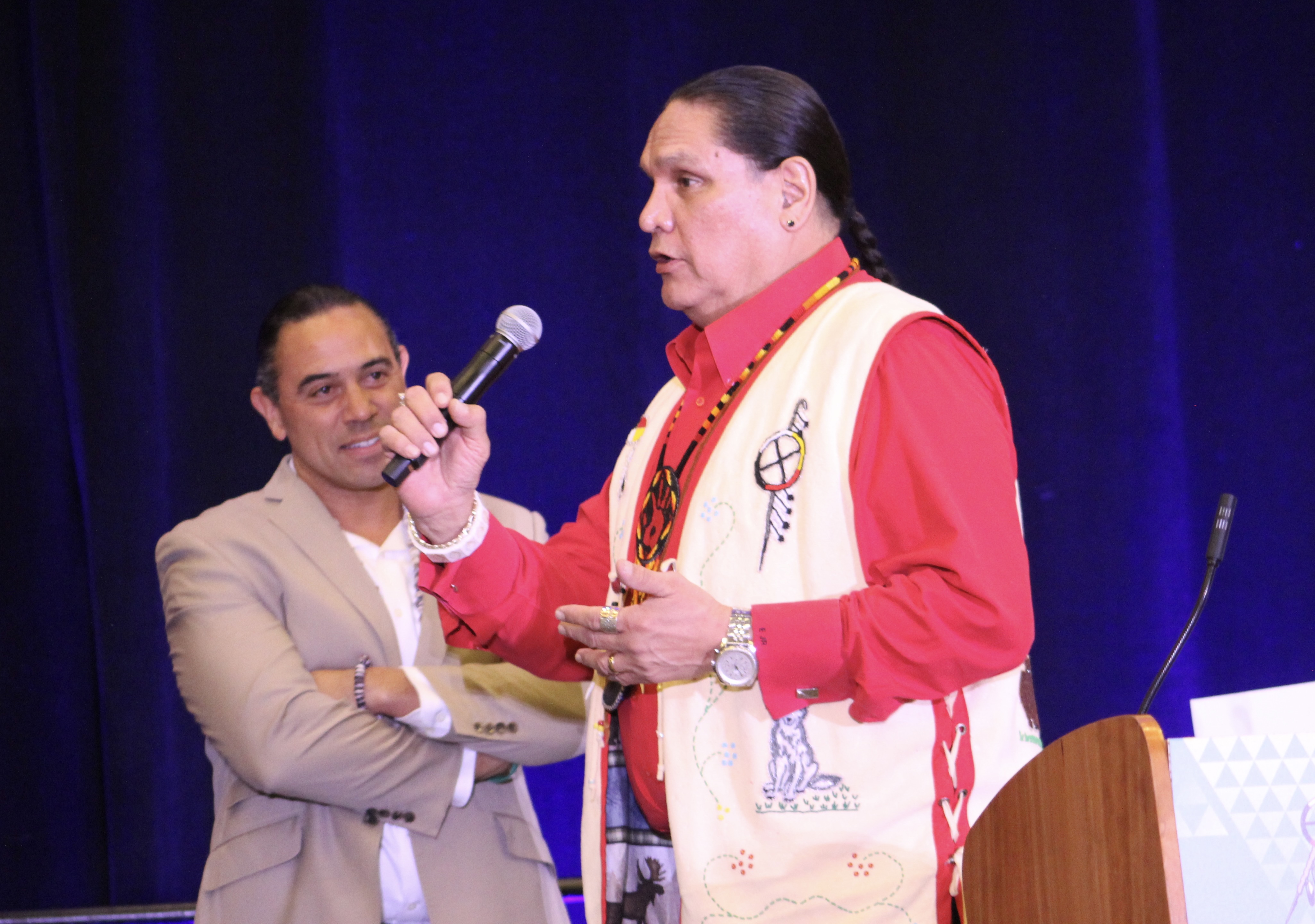
- Details
- By Native News Online Staff
Here are some of the recent articles from Native News Online you may have missed this past weekend:
Indian Gaming Association Chairman Ernie Stevens, Jr. Walks On at 66
Ernie Stevens, Jr., a tribal citizen of the Oneida Nation of Wisconsin and the longtime chairman of the Indian Gaming Association, walked on on Friday. Stevens was 66.
Jason Giles, executive director of the organization, released a short statement to Native News Online on Friday evening:
“Our Indian Gaming Association board and staff are stunned and saddened by Chairman Stevens' passing. Out of respect for his wife Cheryl, his lovely family, and the Oneida Nation, we will issue a full tribute at the appropriate time. Please send your prayers to the Stevens family.”
Tributes for Indian Gaming Association Chairman Ernie Stevens, Jr.
Indian Gaming Association Chairman Ernie Stevens, Jr., who was reelected to his 13th term at the organization’s annual convention in San Diego in April 2025, passed away suddenly on Friday, September 26, 2025. We are publishing several of the tributes that have been shared in his honor.
Deb Haaland (Laguna Pueblo), former U.S. Secretary of the Interior and current New Mexico gubernatorial candidate.
I can’t remember a time when Ernie Stevens wasn’t there for us. He was always kind and supportive; welcoming and ready to help. He was tremendously optimistic about the abilities of Indigenous people and displayed sharp, decisive leadership. When I got the news of his passing, I realized the difficulty in imagining this world without him. He will be missed. Offering deep condolences to his family.
Gov. Newsom Signs Three Tribal Bills on California Native American Day
On Friday, known as California Native American Day, Gov. Gavin Newsom signed three key pieces of legislation focused on Native American issues and issued a proclamation recognizing the significance of the day. The bills—authored by Assemblymember James C. Ramos (D-San Bernardino), the first and only California Native American elected to the Legislature since statehood—address tribal cultural expression, ancestral repatriation, and intertribal support.
NCAI: "Wounded Knee Was Not a Battle, It Was the Deliberate Mass Killing of 350 Lakota
On Friday, the National Congress of American Indians (NCAI) pushed back on the U.S. Department of Defense’s (DoD) decision to retain the Medals of Honor awarded to soldiers involved in the Wounded Knee Massacre on December 29, 1890. This decision announced on Thursday disregards the well-documented truth of a brutal, unprovoked massacre carried out by the 7th Cavalry against the Lakota people—and ignores the moral obligation to confront past injustices with integrity.
Wounded Knee was not a “battle.” It was the deliberate mass killing of more than 350 unarmed Lakota men, women, and children who had sought refuge at Wounded Knee Creek.
 Make A Donation Here
Make A Donation Here
More Stories Like This
Native News Weekly (August 25, 2024): D.C. BriefsUS Presidents in Their Own Words Concerning American Indians
Michigan Attorney General Opens Criminal Investigation into Indian Boarding Schools
Next on Native Bidaské: Julian Brave NoiseCat on the Lumbee Nation’s 140-Year Fight for Federal Recognition
Hackers Compromise Native News Online Facebook Page
Help us defend tribal sovereignty.
At Native News Online, our mission is rooted in telling the stories that strengthen sovereignty and uplift Indigenous voices — not just at year’s end, but every single day.
Because of your generosity last year, we were able to keep our reporters on the ground in tribal communities, at national gatherings and in the halls of Congress — covering the issues that matter most to Indian Country: sovereignty, culture, education, health and economic opportunity.
That support sustained us through a tough year in 2025. Now, as we look to the year ahead, we need your help right now to ensure warrior journalism remains strong — reporting that defends tribal sovereignty, amplifies Native truth, and holds power accountable.
 The stakes couldn't be higher. Your support keeps Native voices heard, Native stories told and Native sovereignty defended.
The stakes couldn't be higher. Your support keeps Native voices heard, Native stories told and Native sovereignty defended.
Stand with Warrior Journalism today.
Levi Rickert (Potawatomi), Editor & Publisher

